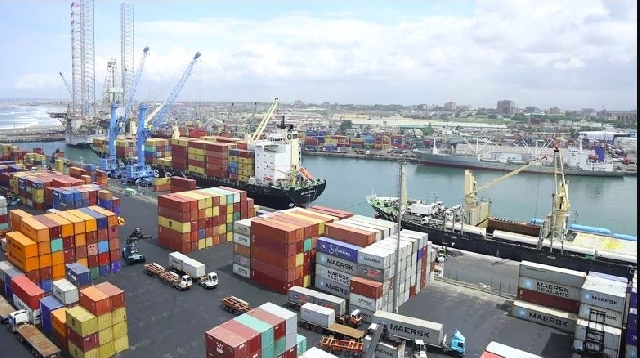Trade attractiveness: Ghana falls from 3rd to 7th in Africa
According to Standard Bank, the decline in the trade ranking of Ghana “is mainly due to a worsening macroeconomic environment and falling trade confidence.”

Ghana has “sharply declined” in terms of trade attractiveness in Africa, moving from the 3rd position to the 7th spot, underscoring the pressures that the economy continues to endure, Issue 4 of the Standard Bank Africa Trade Barometer (SB ATB) launched recently has revealed.
It said the “sharp decline” in Ghana’s trade attractiveness in Africa “also raises concerns about its ability to maintain trade competitiveness, even as Ghana is one of the most stable and democratic countries in West Africa.”
- Advertisement -
According to Standard Bank, the decline in the trade ranking of Ghana “is mainly due to a worsening macroeconomic environment and falling trade confidence.”
- Advertisement -
“As economic volatility intensified in Ghana, its ability to facilitate seamless trade came under strain, making it harder for businesses to access foreign currency, most notably USD, that is required to pay for imports and thus engage in cross-border activities, especially for small and medium-sized enterprises, which this barometer favours,” the barometer noted.
“As Africa moves towards greater integration under the African Continental Free Trade Area (AfCFTA), the Standard Bank Africa Trade Barometer offers critical insights into the opportunities and challenges faced by African businesses and stakeholders in facilitating trade. The shifts detailed in the report further reflect changing macroeconomic conditions, infrastructure challenges and access to finance amongst many others, which are all impacting the trade environments of the 10 countries featured”, said Philip Myburgh, Group Head of Trade at Standard Bank Business and Commercial Banking.
The SB ATB covers seven broad thematic categories of data that impact Africa’s trade, and upon which the barometer scores each country.
These categories are; trade openness, access to finance, macroeconomic stability, infrastructure, foreign trade, governance & economy, as well as traders’ financial behaviour.
The SB ATB serves as Africa’s leading trade index, with the intent of addressing the information vacuum of reliable African trade data that can support and enable the growth of intra-Africa trade.
Overall, the SB ATB trade attractiveness rankings reveal a dynamic shift in trade standings among the 10 African nations it covers, with Tanzania (moving from 8th to 4th ranking), Mozambique (4 to 3), Nigeria (6 to 5) and Zambia (9 to 8) recording improvements in their positions, while declines were recorded for Ghana (3 to 7), Uganda (7 to 9) and Kenya (5 to 6). Meanwhile South Africa, Namibia and Angola retained their rankings, at positions 1, 2 and 10, respectively.
- Advertisement -
The 10 countries covered by the SB ATB are AfCFTA signatory nations, representing 66% of Africa’s gross domestic product (GDP) and 45% of the continent’s population.
Overall, the macroeconomic conditions across the countries present a mixed outlook, with relatively sustained growth tempered by ongoing challenges.
The estimated real GDP growth rate for 2025 stands at 4.3%, reflecting steady progress despite headwinds.
Positive developments include infrastructure investments, economic diversification efforts, and increased production in sectors like oil, mining, and agriculture.
However, high inflation, forecasted to reach 9.9% in 2024, remains a pressing concern, driven by currency depreciation and worsened by weather events such as severe droughts in Southern Africa and flooding in East Africa.
Amid these complex dynamics, it is evident that the path forward will require a focus on prudent economic management, diversified growth strategies, and bolstering resilience against climate risks.
As a trusted partner for the growth of the businesses that continue to power Africa’s dynamic economies, Standard Bank said Issue 4 of its Africa Trade Barometer serves as a tool for businesses to make strategic decisions that foster sustainable trade and economic development across the continent.
“Given our position as Africa’s largest bank, we understand that reliable trade data is essential for making informed business decisions, particularly in the context of a dynamic and evolving trade environment. This Issue 4 of the Standard Bank Africa Trade Barometer provides businesses, governments and investors, with the insights they need to navigate challenges and seize new opportunities on the continent”, advanced Myburgh.
Source:classfmonline.com
- Advertisement -



